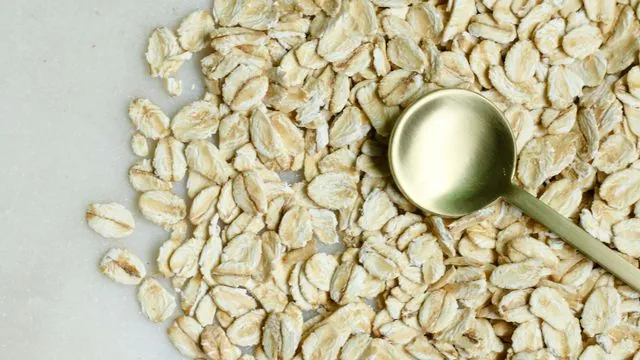
Revolutionizing Oats: CRISPR Technology Boosts Yield and Climate Resilience
2025-06-11
Author: Li
In a groundbreaking development, scientists have successfully harnessed CRISPR technology to edit oat DNA for the very first time, paving the way for oats with richer fiber content, higher yields, and enhanced resilience to climate change.
Oats are not only a staple for human diets but also serve as crucial animal feed, particularly in Canada, where they represent a booming agricultural sector worth approximately $900 million. However, Canadian oat farmers grapple with a short growing season and the threat of late-season frost, which can severely impact their crops.
Published in the prestigious Plant Biotechnology Journal, a team from McGill University has reported that they utilized CRISPR-Cas9, a cutting-edge gene-editing tool likened to genetic scissors, to make targeted edits in oat genes. This method allows for precise genetic modifications much faster than traditional breeding techniques, enabling farmers to adapt to climate challenges more effectively.
Previously, oats were deemed unsuitable for gene editing due to their complex genetic makeup and the limitations of earlier methods. However, team leader and plant sciences expert, Jaswinder Singh, noted, "With CRISPR-Cas9, we’ve achieved in a few months what would traditionally take years. Our approach ensures that no foreign DNA is introduced, making these plants safer and more appealing to consumers."
Accelerating Breeding Innovations
The researchers zeroed in on genes associated with vital traits in oats, including panicle development, plant maturity, and beta-glucan content—renowned for its health benefits. They employed a technique known as biolistic delivery, using a gene gun to introduce CRISPR components into oat cells, resulting in promising changes.
One of the most thrilling outcomes was the emergence of a new plant phenotype, suggesting the potential for significantly higher forage yields. The researchers also observed alterations in flowering times, hinting at the possibility of breeding oat varieties that can mature earlier or later, tailored to specific farmers' needs and local climates.
Mehtab Singh, a PhD student and the paper's lead author, expressed enthusiasm for the implications: "This breakthrough is crucial for climate adaptation. Developing earlier-maturing oats that withstand colder conditions empowers farmers in regions with short growing seasons or unpredictable weather to cultivate more dependable and sustainable crops."
Looking ahead, the team intends to investigate additional traits, such as disease resistance and stress tolerance, and to conduct field tests on their gene-edited oats. This research could ultimately reduce the dependency on chemicals typically used to expedite harvests, addressing environmental concerns and promoting sustainability.



 Brasil (PT)
Brasil (PT)
 Canada (EN)
Canada (EN)
 Chile (ES)
Chile (ES)
 Česko (CS)
Česko (CS)
 대한민국 (KO)
대한민국 (KO)
 España (ES)
España (ES)
 France (FR)
France (FR)
 Hong Kong (EN)
Hong Kong (EN)
 Italia (IT)
Italia (IT)
 日本 (JA)
日本 (JA)
 Magyarország (HU)
Magyarország (HU)
 Norge (NO)
Norge (NO)
 Polska (PL)
Polska (PL)
 Schweiz (DE)
Schweiz (DE)
 Singapore (EN)
Singapore (EN)
 Sverige (SV)
Sverige (SV)
 Suomi (FI)
Suomi (FI)
 Türkiye (TR)
Türkiye (TR)
 الإمارات العربية المتحدة (AR)
الإمارات العربية المتحدة (AR)